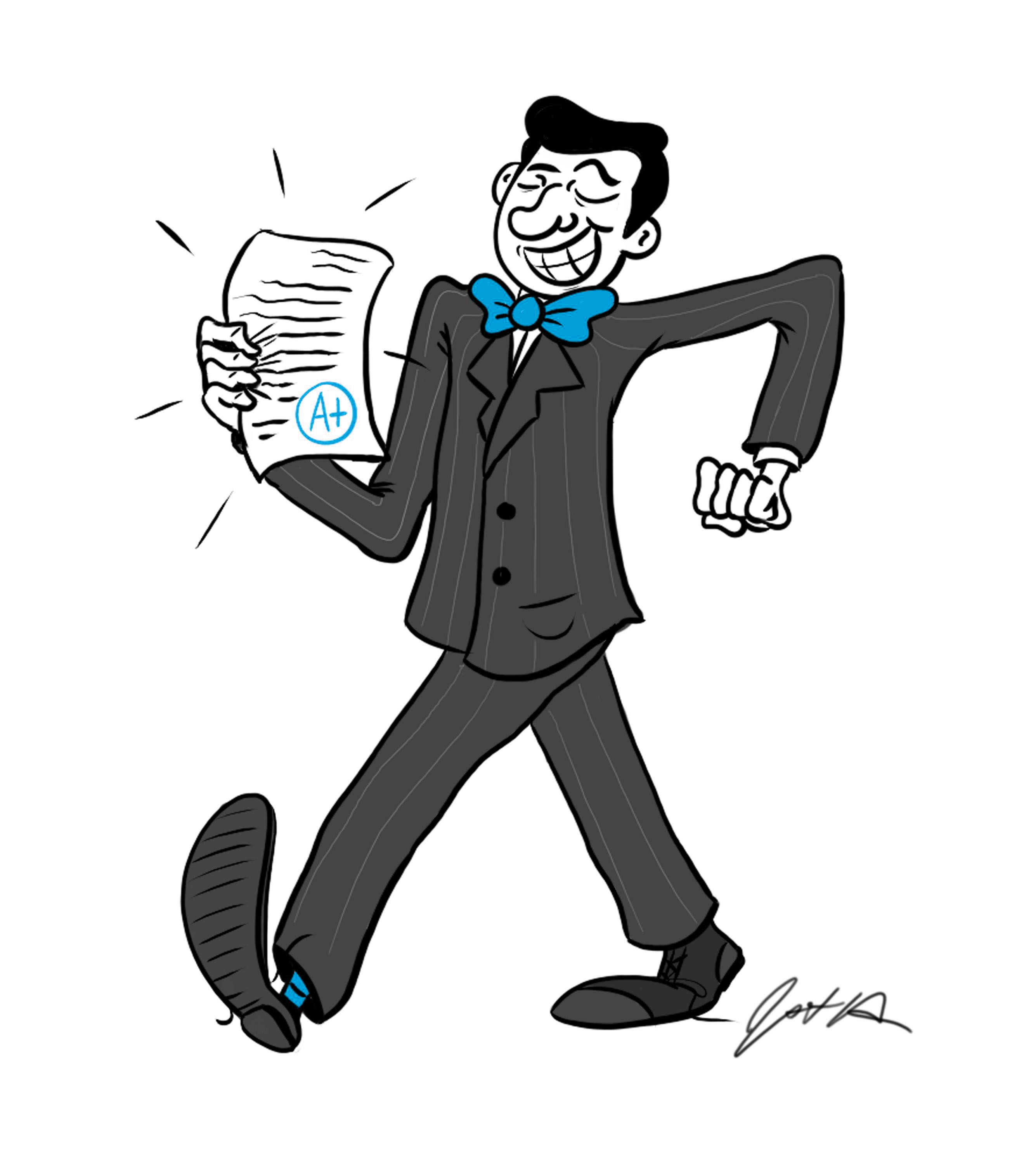![]()
The phrase “Dress well, test well” has been repeated in schools for decades. Skeptics scoff, citing the converse, “Comfort is king.” But does clothing really have an impact on student success?
Student Counseling Center counselor Mollie Reddin suggests clothing choices influence self-confidence. “How we dress can influence whether or not we feel confident, comfortable, powerful, or prepared,” she said. “How we care for ourselves and present ourselves can influence this positively or negatively.”
Dr. Curtis Cunningham, who teaches in the education department, suggests that while some people base their attire on how they feel, others choose clothing because they enjoy it. “I don’t know that I could say conclusively that students who dress well perform better academically,” Cunningham said. “But I do think it’s worthwhile for students to be aware or conscious the way they dress reflects some internal feelings and emotions.”
Cunningham suggests that dressing professionally affects how seriously he takes their work. “I dress more professionally on the days that I’m teaching than on the days that I’m in my office. I don’t know if we can generalize that across everyone, but personally I’ve noticed a difference in the way I approach my work somewhat based on the way I dress.”
Nursing major Annika Hedström typically dresses nicely for class. “When I dress well, I seem to have a more positive outlook on my day,” Hedström said. “I feel more ‘put-together’ even if I’m mentally scattered. It’s a way to convince myself that I do actually have a part of my life that isn’t falling apart.” Hedström prides herself on never wearing sweats to class. “But, on the days where I don’t dress as nice, I tend to have more of a ‘blah’ day. I don’t feel as put together, and I feel more lethargic and lazy. I am a firm believer in ‘dress well, test well.’”
Evyn McGraw, junior English major, also typically dresses well for class, wearing a “blazer or suit vest with slacks or dark jeans,” often with hats and bowties, looking like a self-proclaimed English professor.
“I don’t know about focus or grades, but I can see a correlation between self-esteem and dressing well,” McGraw said. “Whether we like it or not, how we dress affects others’ perception of us. So, when I dress well, I know people take me more seriously than they would if I looked like a perpetual dumpster fire. It’s a bit of a confidence boost.”
However, McGraw adds, “correlation doesn’t equal causation, after all. When someone is doing well psychologically, they’re probably more likely to do better academically and also take better care of their appearance. But to say that dressing well will improve school performance seems like a simplistic conclusion.”
Dressing well, however, goes farther than just testing well. It also can be a form of self-representation.
Michael Schultz, senior international business major, said, “I would like to think that when I dress up I am preparing the most honest and respectful representation of myself in order to connect with others in the best and sincerest manner. Whether I am dressed up for an interview or dressed for a Tuesday, I take pleasure and confidence from the fact that I know I am making the best and most accurate representation of who I am as a unique individual.”
However, not everyone has seen a difference in dressing up on test days.
“I think if it helps, then more power to you,” Jonathan Leonard, senior Biblical and theological studies major, said. “I personally don’t feel like it is an actual thing—but more like a placebo. Maybe it does help people but I’ve never noticed a difference when I dress up for a test. Just be you. Also, just study and then you don’t have to rely on alternative methods to help you do well. “
Reddin also suggests self-care practices like “prioritizing good sleep, exercise, and nutrition” are important as well as “setting boundaries that help [students] put their time, energy and emotions into the things they most value.”
Ultimately, while “dress well, test well” has some merit, student success seems to be more directly tied to self-care practices and self-esteem.
“Some people might either dismiss fashion as shallow and superfluous or concern themselves so much with social norms that they take it far too seriously,” McGraw said. “I try to avoid both of these pitfalls and keep a more relaxed view of my aesthetic, neither dismissing nor elevating people’s perceptions of me. What we wear matters as means of communication and self-expression, but we shouldn’t let it matter too much.”

